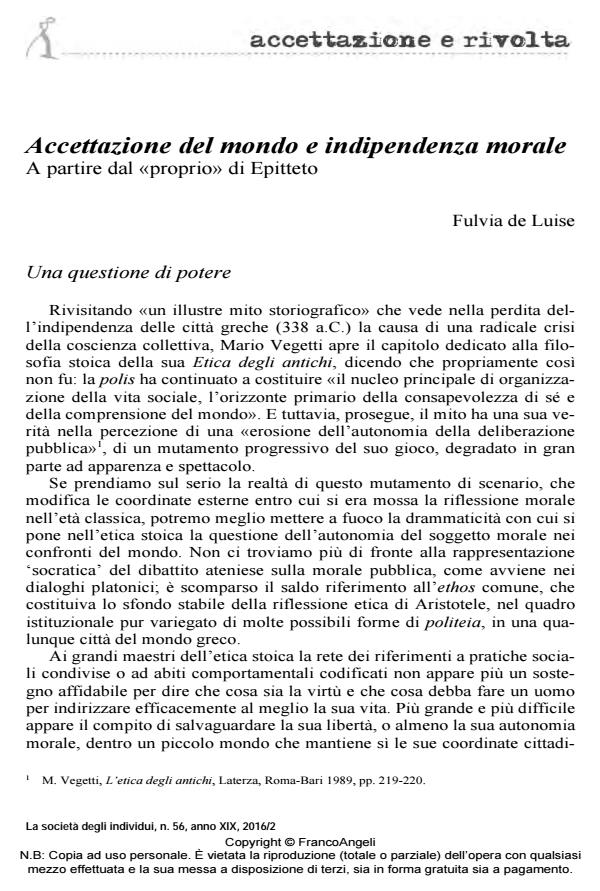Acceptance of the world and moral independence From the Epictetus’ "one’s own"
Journal title SOCIETÀ DEGLI INDIVIDUI (LA)
Author/s Fulvia De Luise
Publishing Year 2016 Issue 2016/56
Language Italian Pages 13 P. 129-141 File size 111 KB
DOI 10.3280/LAS2016-056009
DOI is like a bar code for intellectual property: to have more infomation
click here
Below, you can see the article first page
If you want to buy this article in PDF format, you can do it, following the instructions to buy download credits

FrancoAngeli is member of Publishers International Linking Association, Inc (PILA), a not-for-profit association which run the CrossRef service enabling links to and from online scholarly content.
The essay discusses the contribution of the ancient Stoic philosophy to the formulation of a moral ideal which puts the individual in a position to dominate the course of his life, maintaining a complete independence with regard to the course of the world. The speech takes inspiration by the particularly harsh and rigorous formulations of Epictetus in the definition of what is or is not in our power, to show the implications and benefits of a philosophy that is based on a singular paradox: the attribution of great power to virtue, a necessary and sufficient condition for happiness, just because the real wise man renounces any claim to influence the way of being of things and is dedicated exclusively to cultivate in himself the form of the moral perfection. It is a very high ideal that will have many seasons and many lives, without exhausting the strength of its charm.
Fulvia De Luise, Accettazione del mondo e indipendenza morale A partire dal «proprio» di Epitteto in "SOCIETÀ DEGLI INDIVIDUI (LA)" 56/2016, pp 129-141, DOI: 10.3280/LAS2016-056009